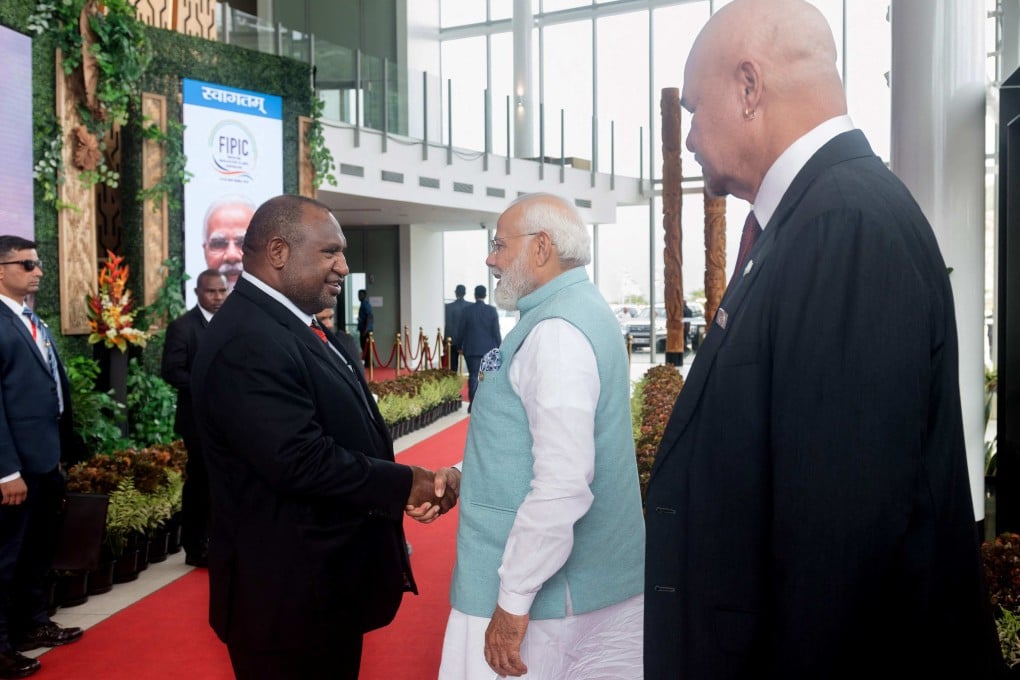Advertisement
India seeks to become ‘Global South champion’, as US-China rivalry heats up in the Pacific
- PM Modi says India will be a reliable partner, as New Delhi banks on goodwill from historical links with Pacific nations to make further inroads into the region
- India’s interest in the region means Pacific nations now have ‘real alternatives’ to their development that are not dependent on China, one observer notes
Reading Time:3 minutes
Why you can trust SCMP
15

Even as India emerges as a US partner in countering China, New Delhi is eyeing to be a “champion” of the Global South, aided by its historical links with the Pacific that give it a level of goodwill not even the US and Australia can match, analysts have said.
During a summit with Pacific leaders in Port Moresby on Monday, Indian Prime Minister Narendra Modi told members of the Forum for India-Pacific Islands Cooperation that Delhi would be a reliable partner to small island states amid difficulties caused by supply chain disruptions and climate change.
The 14 countries include the Cook Islands, Fiji, Kiribati, Marshall Islands, Micronesia, Niue, Nauru, Palau, Papua New Guinea (PNG), Samoa, Solomon Islands, Tonga, Tuvalu and Vanuatu.

After a bilateral meeting with PNG leader James Marape, Modi said on social media he had discussed ways to strengthen cooperation in commerce, technology and healthcare, and in addressing climate change with the tiny island.
Advertisement
Describing smaller Pacific nations as “victims of global power play”, Marape reportedly asked Modi to be the leader of Global South, a term which refers to developing nations south of the equator.
Rafiq Dossani, director of the US-based RAND Centre for Asia-Pacific Policy, said India’s interest in the region was part of its “ideological commitment to the Global South and helping fulfil its own ambition as a great power”.
Advertisement
Delhi wished to be known as the “champion of the Global South”, even if strategically the islands did not mean as much to India as they did to the United States and China, Dossani noted.
Advertisement
Select Voice
Select Speed
1.00x